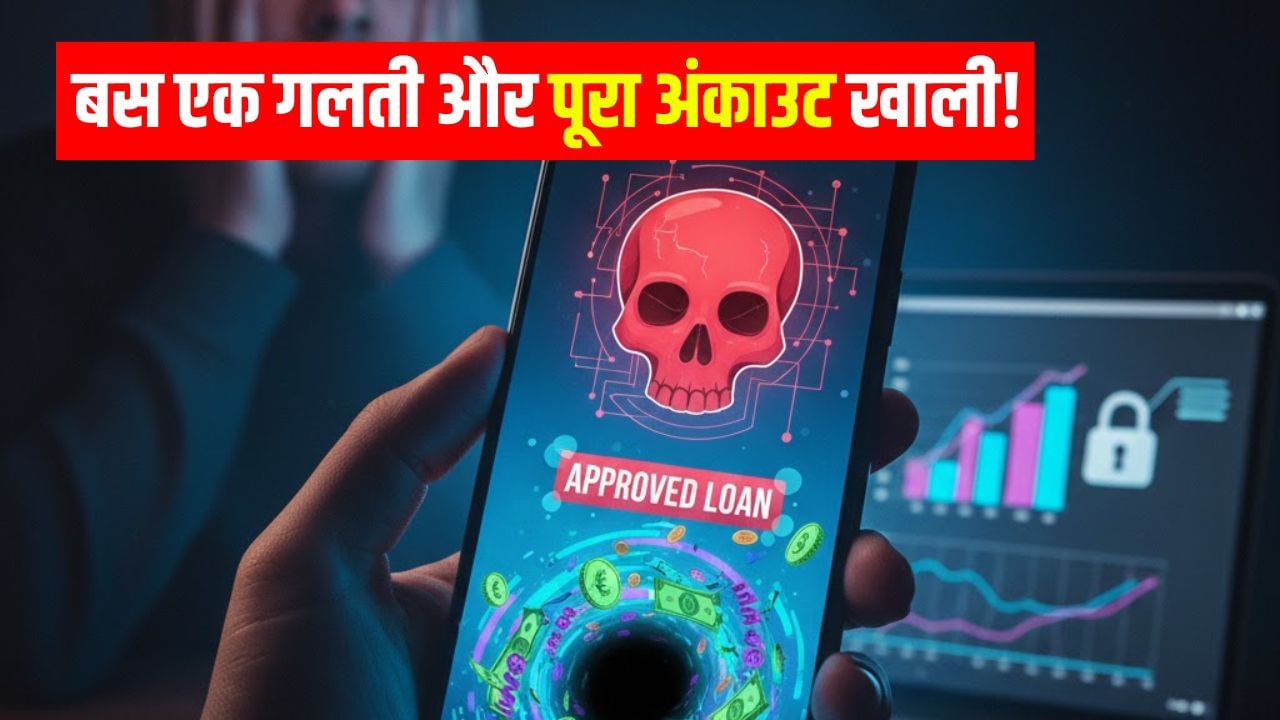personal loan fraud
There are many times in life when there is a dire need of money. In such a situation, advertisements like ‘Instant loan in 10 minutes’ or ‘Instant cash without hassle’ seem no less than a boon. But this is the moment when fraudsters are laying a trap to take advantage of your helplessness. They connect with you by masquerading as a big and trustworthy company or bank, luring you with low interest and instant approval. As soon as you fall into their trap, they either steal your personal information (data) or disappear with the ‘upfront fee’.
Is your lender genuine?
Fraudsters always work secretly, whereas the information of genuine and legitimate lenders is transparent. Before trusting any advertisement, do some basic research. First check the name of the company in the list of authorized banks or NBFCs (Non-Banking Financial Company) on the website of Reserve Bank of India (RBI). Check out their official website. Is the website domain name professional? Is the registered address and contact details of the company clearly written on it? If the address is of some random co-working space or there is no information at all, then this is a red flag.
Nowadays, fake apps are a major source of fraud. If someone asks you to install an app (APK file) from an unknown link (like a link received through SMS or WhatsApp), then do not do so even by mistake. Trustworthy companies will always ask you to download apps only from official stores like Google Play Store or Apple App Store.
‘Just give Rs 999 and the loan is confirmed’
This is the oldest and most effective method of fraudsters. They trap you with words like ‘processing fee’, ‘file charge’, ‘insurance fee’ or ‘GST’. You will be told that your loan has been approved, you just have to deposit a small amount of Rs 999 to Rs 4,999 first for it to be disbursed into your account. This is where you have to stop.
Keep in mind that no legitimate bank or NBFC asks you for any kind of fee before giving loan. Any applicable charges (like processing fees) are always deducted from your sanctioned loan amount and the remaining amount is given to you. If someone is asking you for money first to get the money, then it is definitely a scam.
The clue of fraud is hidden here
Any organization is identified by the way it communicates. Banks will never contact you through private WhatsApp numbers or free Gmail/Yahoo IDs. Their email addresses are official (e.g. @bankname.com). Messages from scammers often contain spelling mistakes, overly pressured words (“hurry up”, “offer expires”) and vague promises.
On the contrary, a genuine loan officer will clearly explain all the terms and conditions of the loan to you. It will give you information about the interest rate, loan tenure, EMI, and most importantly APR (Annual Percentage Rate). Fraudsters just want to trap you by saying “best offer”.
Be careful about documents
Apart from this, be very careful about your documents. Do not share your PAN, Aadhaar, selfie or bank statement unless you are 100% sure. Many fake apps ask you for permission to access your phone’s contact list, gallery, camera and mic. Imagine, why do they need your friends’ numbers or your photos to give a loan? They steal this data and later call those contacts and blackmail you. Even if you have not taken a loan. If an app asks for a permission that doesn’t make any sense, deny it immediately.
Be alert if someone says this
“This special offer is only for the next 30 minutes.” This is a psychological trick, so that under pressure you do not take time to think and take a wrong decision. As soon as you feel that someone is pressuring you to hurry, stop right there. A genuine and legitimate loan offer will still be there the next day.
Be patient. Read the loan agreement carefully. Don’t be happy with just the EMI, check the APR (Compound Annual Interest). Many times, high interest and heavy charges are hidden under the guise of low EMI.
What to do if you get stuck?
Even if you have accidentally fallen into a trap, do not panic, but take action quickly. If you have paid any fees, immediately contact your bank to get that account blocked and report the transaction. Report that app or social media handle on every platform. Most importantly, immediately visit the National Cyber Crime Portal (cybercrime.gov.in) and lodge a complaint. If you’ve shared documents, change all your passwords, turn on two-factor authentication (2FA), and consider freezing your credit score.
